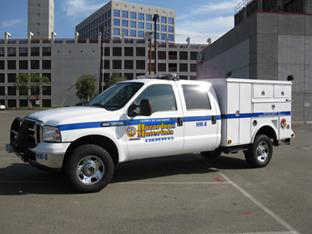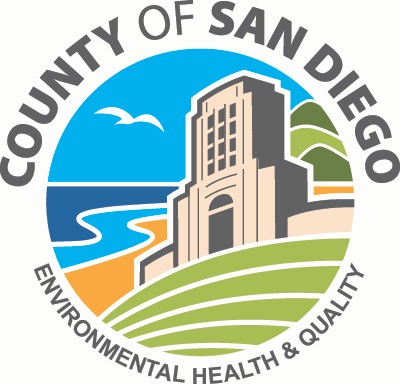Hazardous Materials Division
The goal of the Hazardous Materials Division (HMD) is to protect
human health and the environment. To accomplish this goal, the HMD
regulates facilities that:
- Handle or store Hazardous Materials in Hazardous Material Business Plan (HMBP) reportable amounts
- Are part of the California Accidental Release Prevention Program (CalARP)
- Generate or treat Hazardous Waste in any amount
- Generate or treat Medical Waste in any amount
- Are subject to the Aboveground Petroleum Storage Act (APSA)
- Own or operate Underground Storage Tanks (UST)
By law, every business in San Diego County involved in these activities must have a valid Permit through the California Environmental Reporting System (CERS). You can find more details on our CERS information page.
For more information, please visit our CERS page. HMD Forms and HMD Guidance Documents are still available from any HMD webpage from the menu on the right side of the screen.
Visit our HMD News page for updates on our Cost Recovery Proposal, and for Generator Improvements Rule (GIR).
Does your facility handle hazardous materials as a commercial product? Under Assembly Bill 2059, your facility may be required to report these materials. Learn more details on AB2059.
Additional Services
Emergency Response and Border Inspections are also important programs within HMD. Both programs are collaborative efforts with local, state, federal and international agencies to protect the lives and health of all residents and visitors of San Diego County
For More Information
Check out our brochures, available in multiple languages:
| English | Farsi |
| Spanish | Dari |
| Tagalog | Chinese |
| Vietnamese | Somali |
| Korean |














